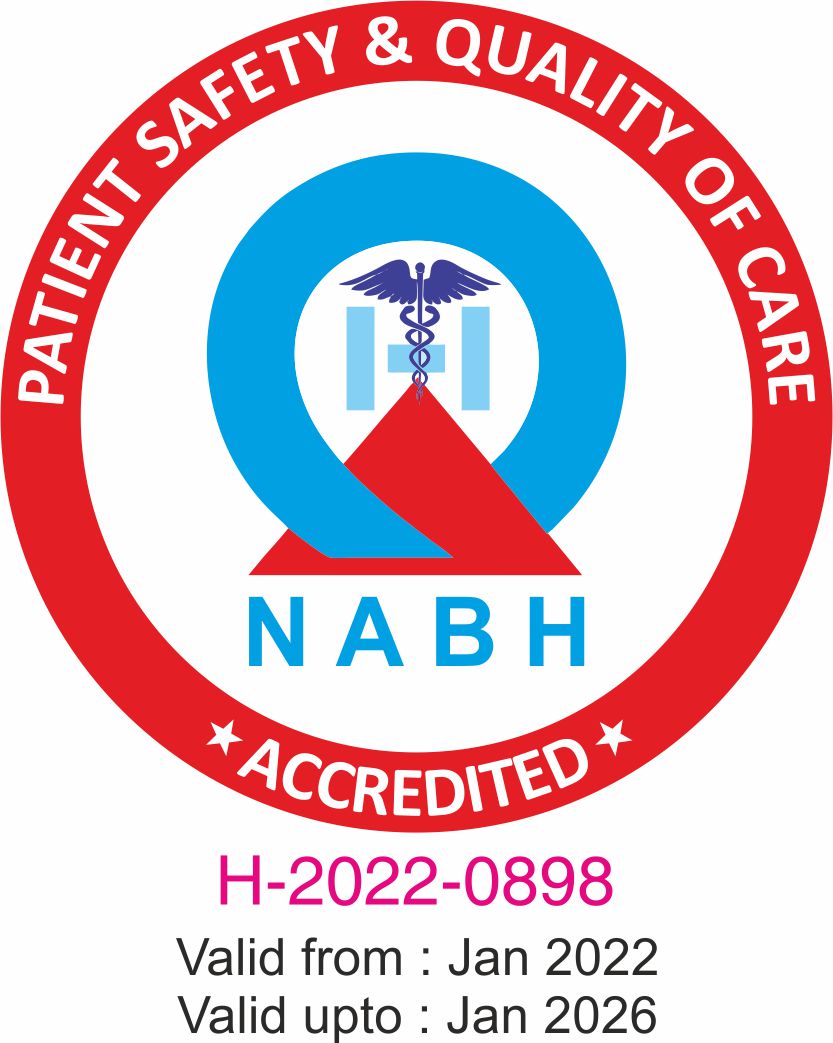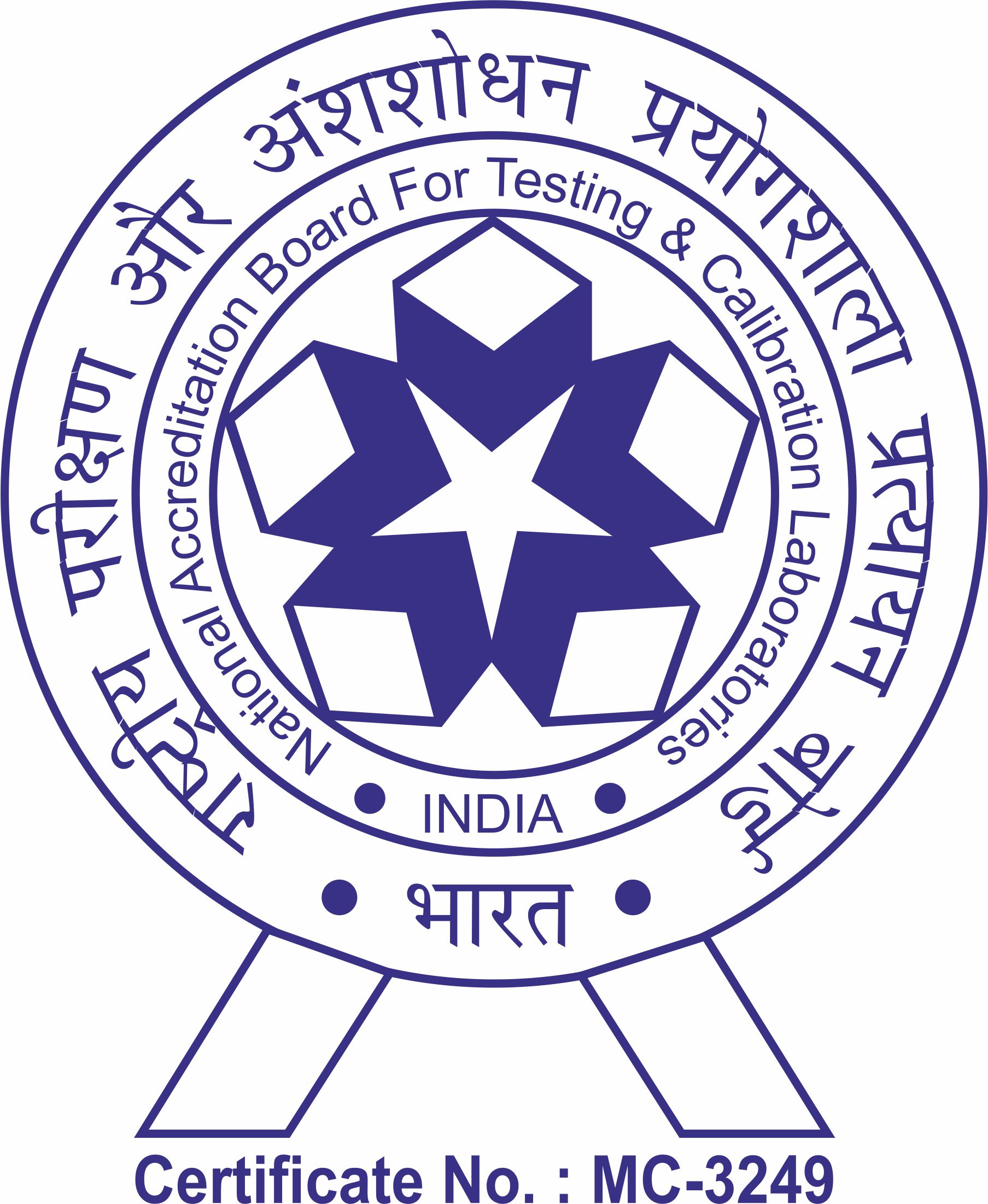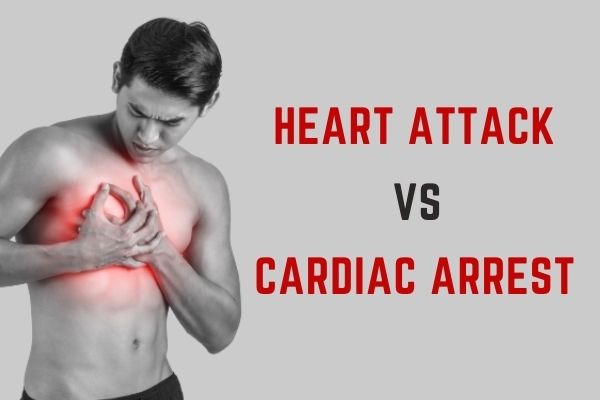We live in the 21st century with an enormous amount of technology, advanced processes and fast moving lives. The risk of facing health issues have increased exponentially. While genetic factors contribute enough to development of enormous health issues, our unhealthy lifestyle choices play a big role too.
Heart attack and cardiac arrest are the most common heart conditions which have severe and long lasting effects on a person’s health. It is very important to know that both heart attack and cardiac arrest are different. Both have different symptoms, causes, risks and treatments.
Let us take you through the entire distinguishing factors of a heart attack and a cardiac arrest.
WHAT IS A HEART ATTACK?
Heart attack (scientific name: myocardial infraction) occurs when blood flow decreases or stops flowing to a part of the heart. This causes damage to the heart muscles. The blockage is often a build-up of fat, cholesterol and other substances. This causes a plaque in the arteries that feed the heart. The plague can sometimes form a clot that block the flow.
WHAT IS A CARDIAC ARREST?
Cardiac arrest (scientific name: ventricular fibrillation) means “inability of the heart to pump adequate amount of blood to maintain the vital functions of body.” This can occur because of several electrical abnormalities of the heart like ventricular fibrillation, prolonged asystole and tamponade.
|
CATEGORY |
HEART ATTACK |
CARDIAC ARREST |
|
Definition |
Heart attack occurs when blood flow to the heart is blocked |
Cardiac arrest occurs when the heart malfunctions and stops beating unexpectedly. |
|
Occurrence of Symptoms |
Hours or days before |
Moments before |
|
Symptoms |
Chest pain Fatigue Weakness Nausea Difficulty in breathing |
Unconsciousness No pulse No breathing Collapse
|
ARE HEART ATTACK AND CARDIAC ARREST LINKED TO EACH OTHER?
Heart attack and cardiac arrest are different from each other yet they are linked. Sudden cardiac arrest occurs after a heart attack or during recovery from a heart attack. The risk of a cardiac arrest increases after a heart attack.
Most of the times a heart attack does not lead to a cardiac arrest but mostly the reason behind a sudden cardiac arrest is a heart attack.
CAUSES OF A HEART ATTACK?
There are various factors that gradually contribute fat to build up which narrows the arteries throughout the body. Here are the risk factors of a heart attack.
- AGE
- DIABETES
- SMOKING (TOBACCO)
- HIGH BLOOD PRESSURE
- OBESITY
- LACK OF PHYSICAL ACTIVITY
WHAT TO DO DURING A HEART ATTACK
Heart attacks occur suddenly but many people have warning signs hours and days in advance. Here are a few things that must be done in case of heart attack.
- CALL FOR AN AMBULANCE
Symptoms of a heart attack must not be ignored. If you can feel those symptoms you must call for help. Calling an ambulance is the right thing to do. At Shree Maharaja Aggarsain International Hospital, our ambulances are available 24*7 with least waiting time.
- CHEW AND SWALLOW AN ASPIRIN
While you are waiting for help to arrive. You must swallow or chew an aspirin. Aspirin helps in avoiding blood from clotting. When we take it during an heart attack it reduces the damage to heart. Patients who are allergic to aspiring must not consume it during a heart attack.
- BEGIN CPR IF PERSON IS UNCONSCIOUS
If there are helpers around and the person having a heart attack is unconscious, isn’t breathing then you must begin the CPR process in order to keep the blood flowing. One must push hard and fast on the centre of the patient’s chest in a rapid rhythm (100-120 compressions per minute).
If you are alone and feel dizzy start coughing violently. This acts like a CPR.
- AUTOMATED EXTERNAL DEFIBRILLATOR
In case AED is available at disposal and the person having a heart attack is unconscious then follow the device instructions and use it.
WHAT TO DO DURING A CARDIAC ARREST
Cardiac arrest is mostly reversible for victims if treated within stipulated minutes. Here is what you can do in case of a cardiac arrest-
- CALL FOR AN AMBULANCE
One must first of all call an ambulance for help in case of a cardiac arrest.
- CHECK FOR NO BREATHING OR ONLY GASPING
If the victim is not breathing or is only gasping then begin a CPR with compressions.
- HIGH QUALITY CPR
Begin high quality CPR with 100-120 pushes a minutes. One must allow the chest to come back to its normal position after each push.
The CCU is positioned with easy access to the Cardiac cath lab unit and cardiac surgical unit on the same floor. Specially trained nursing staff, cardiology fellows and anaesthesiologist are available round the clock in the ICCU. All the beds are hooked to the latest Mindray monitors which do multipara monitoring and are capable of measuring non-invasive cardiac output. There is a central telemetric unit allowing meticulous observation for adverse cardiac events from the nursing station. The CCU has defibrillators capable of bedside per-cutaneous pacing also, if need arises. Additional equipment include: Ventilators, Intra –aortic Balloon Pump, Impella and Extra Corporeal Membrane Oxygenator (ECMO). A dedicated, bed side Echocardiography Unit is placed in CCU.
RECOVERING FROM A HEART ATTACK AND CARDIAC ARREST
At Shree Aggarsain International Hospital we have 11 bedded ICCU facility equipped to manage the most critical cardiac patients.
TIPS WHILE RECOVERING FROM A HEART ATTACK
- Avoid trans fat and saturated fats-
- Less intake of fats, carbohydrates
- Limit consumption of sodium
- Eat fresh preduce
- Exercise as advised by your doctor.
- Get support in case your emotions after a heart attack overpower your well being
TIPS WHILE RECOVERING FROM A CARDIAC ARREST
- Diet
- Medication
- exercise
HOW TO PREVENT A HEART ATTACK & CARDIAC ARREST
“Prevention is better than cure.” So why waste your precious life, when you can actually reduce chances of such a life taking heart disease. Follow these simple tricks to prevent a heart attack and cardiac arrest.
- Keep a check on your blood pressure
- Keep your cholesterol in control
- Maintain a healthy weight
- Lead a healthy eating lifestyle
- Exercise regularly
- Do not indulge in illegal drugs
- Limit the intake of alcohol
- Do not smoke
- Manage your diabetes
- Get enough sleep



